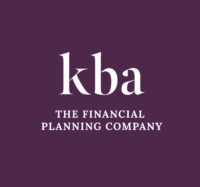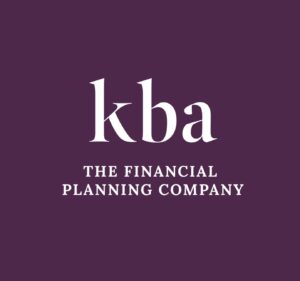Buying your first home can feel like a marathon, and you may have been making plans and saving a deposit for years. If you’re planning to buy in 2023, it’s an exciting milestone you’re approaching. But there are still some essential steps you should take before you put in an offer or apply for a mortgage.
These steps can help you choose a property and mortgage that’s right for you. At a time when interest rates are rising and there’s uncertainty in the property market, they’re more important than ever.
1. Set out your must-haves
While you may have daydreamed about what your own home will be like, setting out your expectations can help you narrow down the search.
Consider what locations meet your needs. Thinking about how a location will suit your lifestyle can help you build a fulfilling life in your new home. So, that may include considering how long your commute will be and what local amenities are close by to take advantage of on the weekends.
Creating a list of must-haves for the property can be useful too. If you work from home, is an office essential? Or do you need a large outdoor area to accommodate your dog?
As well as considering what you need now, it’s worth thinking about the future. If you hope to have children in the next few years, looking for a home with a nursery and community groups close by can mean your home is suitable for the medium term.
2. Start looking at the property market
Once you have an idea about the property you’d like and your desired location, start to search the property market.
This can help you understand if your expectations are realistic. You may need to compromise on some areas of your wish list or be prepared to take on a project.
Online platforms, like Rightmove or Zoopla, are a great place to start. They can help you understand what’s available for your budget.
Even if you’re not quite ready to buy, booking some viewings can also be useful. Seeing properties in person can give you a better idea of what you’re willing to compromise on and give you an insight into the local area.
3. Review your deposit
If you’re ready to buy in 2023, you’ve probably been saving a deposit for a while, but it’s still worth giving it some attention now.
First, make sure you have enough saved. Typically, you’ll need a minimum deposit of 5% of the property’s value. However, you can often access a better interest rate by putting down a higher deposit. If you can, paying a higher deposit now could save you money in the long run.
4. Check your credit report
Lenders will use your credit report to assess your mortgage application. It can take several months for changes to show up on your report, so this is a task that’s worth prioritising.
Your credit report includes things like previous addresses and payment history, so a lender will be able to see if you’ve previously defaulted.
You can review your credit report without affecting the score. You should check there are no mistakes in the report. There may also be steps you can take to improve your score, such as registering on the electoral roll or reducing your credit card utilisation.
A poor credit score or red flags on your report doesn’t automatically mean you won’t be able to secure a mortgage. However, you may want to explain your situation as part of your application or choose a specialist lender. We can help you assess which lenders may be right for you.
5. Understand your mortgage options
When you take out a mortgage, there are some big decisions you need to make that will affect your finances over the long term. Understanding your options is important.
One of the first things to consider is the mortgage term. Traditionally, first-time buyers have taken out a mortgage for 25 years. However, as house prices have increased, it’s now common to choose a 30- or even 40-year mortgage term.
A longer mortgage term means your repayments are more spread out, so your monthly outgoings would be lower. However, as you’ll be paying interest for longer, the cost of borrowing is normally higher overall.
The mortgage term you choose now isn’t set in stone. When your mortgage deal ends, you can review the term. As a result, you could choose to shorten the term if your income increases.
The other thing to consider is the type of mortgage you’ll choose. This will affect how interest is added to your loan. As interest rates increased throughout 2022, it’s crucial to think about which option is right for you.
The three main types of mortgages are:
- Tracker-rate mortgage: The interest rate you pay may increase or decrease during the term of the mortgage. It would typically follow the Bank of England’s (BoE) base rate.
- Variable-rate mortgage: This is similar to a tracker-rate mortgage, but rather than following the BoE’s rate, it would rise and fall in line with your lender’s rate. As a result, your mortgage repayments may change during the term.
- Fixed-rate mortgage: The interest rate you pay would be fixed for a defined period, often two, three, or five years. You won’t have to worry about repayments increasing, but you also wouldn’t benefit if interest rates fell.
6. Calculate your affordability
While a lender will assess your affordability, it’s a good idea to review your finances too. It means you can apply for a mortgage confident that you’ll be able to meet repayments.
Buying a home is a large financial commitment, so ensuring your income will cover the repayments, as well as other outgoings, is crucial. You may decide not to use the full amount you could borrow when you look at your budget.
As interest rates are rising, it’s worth assessing if you could cope if they increased further. This is particularly important if you choose a tracker- or variable-rate mortgage.
7. Apply for a mortgage in principle
Finally, a mortgage in principle can help you understand how much you could borrow and ensure you’re looking at properties that are within your budget.
It isn’t a guarantee, but it can be useful, and some estate agents may require you to have one if you want to book a viewing.
A mortgage in principle will usually involve a soft credit check, which will not affect or show up on your credit report.
Remember, you don’t have to use the lender that provided you with a mortgage in principle when you’re ready to buy – you should still shop around other lenders to find the right option for you.
If you want our help applying for a mortgage in principle or you’re ready to buy now, please contact us. We’ll help you understand the home-buying process and navigate applying for your first mortgage.
Please note: This blog is for general information only and does not constitute advice. The information is aimed at retail clients only.
| YOUR HOME MAY BE REPOSSESSED IF YOU DO NOT KEEP UP REPAYMENTS ON A MORTGAGE OR ANY OTHER DEBT SECURED ON IT. |


